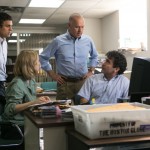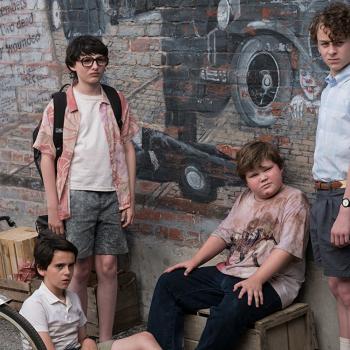This brings me to the new town preacher in the film. This modern man has a sophisticated grasp of theology and higher learning, but he lacks anything of the faith of a child. He lacks an ability to engage in loving relationship with his parish. We see him only a few times, but he seems always to be dropping in and then immediately leaving, unable to incarnate himself in the community or come near to his flock as Christ did to those on earth. Is it any wonder that his theology leads him to be this kind of pastor? Surely a pastor whose theology centers around the embodied Word will naturally embody himself in the community he serves. (As a former pastor, I found this point all too convicting!)
This pastor has very learned ways of explaining why people need not believe in miracles anymore: You see, God has created a natural world with natural laws and does not choose to go against His natural laws, though He could if He wanted to. When he is asked about the miracle of Christ, the minister remarks that Christ was a special case. I have to admit that I have made similar arguments at times, perhaps too afraid to claim that a living God could actually emerge in the real, physical world as it is today and bring miracles. I have sophisticated reasons for saying that God probably won’t do that, but are my reasons any better than those of this sophist? I found myself asking if I could dare believe in a God and a Word (what Ordet means) who actually breaks into our real world and act among us?
Surely, like Morten I too struggle with the problem of God’s silence in answer to prayers. Why do miracles sometimes break forth and sometimes not? Perhaps Inger is right: “I believe a lot of miracles happen secretly. God hears people’s prayers but He does it kind of secretly so as not to have too much fuss made about it.” Maybe that’s the truth, maybe not. But this film challenged me to think about the importance of wrestling with miracles in the Christian’s life. On the one hand, one can become presumptuous of God, declaring our will be done rather than His. But on the other hand, one can become too abstract and distant about the genuine ability of God to intervene in our world today and to do so in an enfleshed, real way. Johannes stumbles onto complex truths at times in the midst of his madness; one time, he says this: “People believe in the dead Christ but not in the living.”












